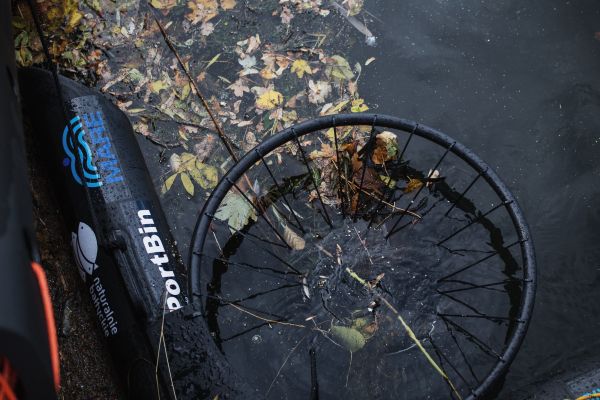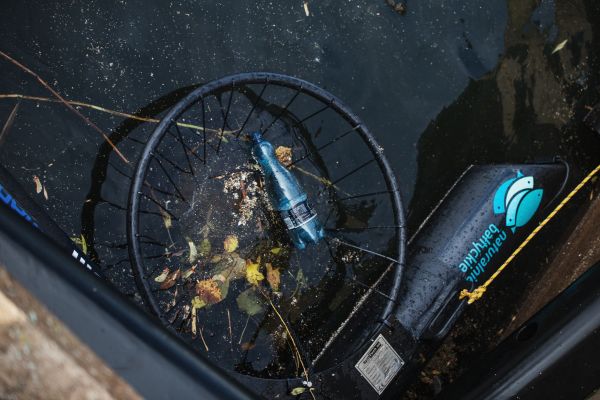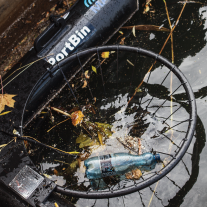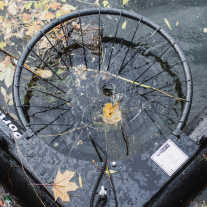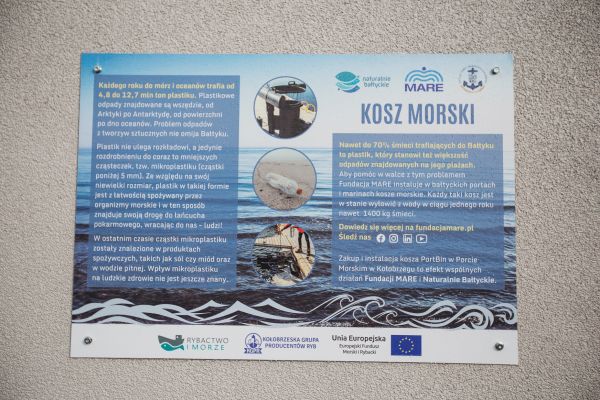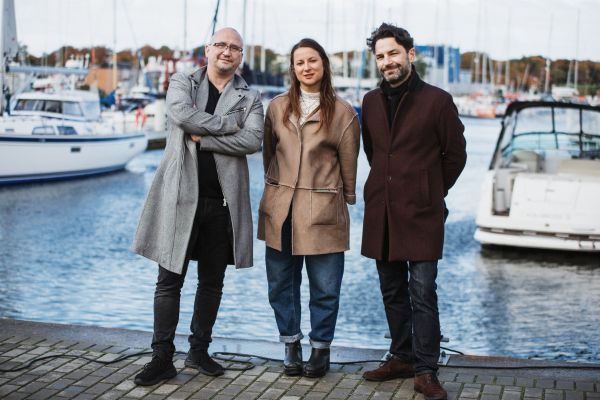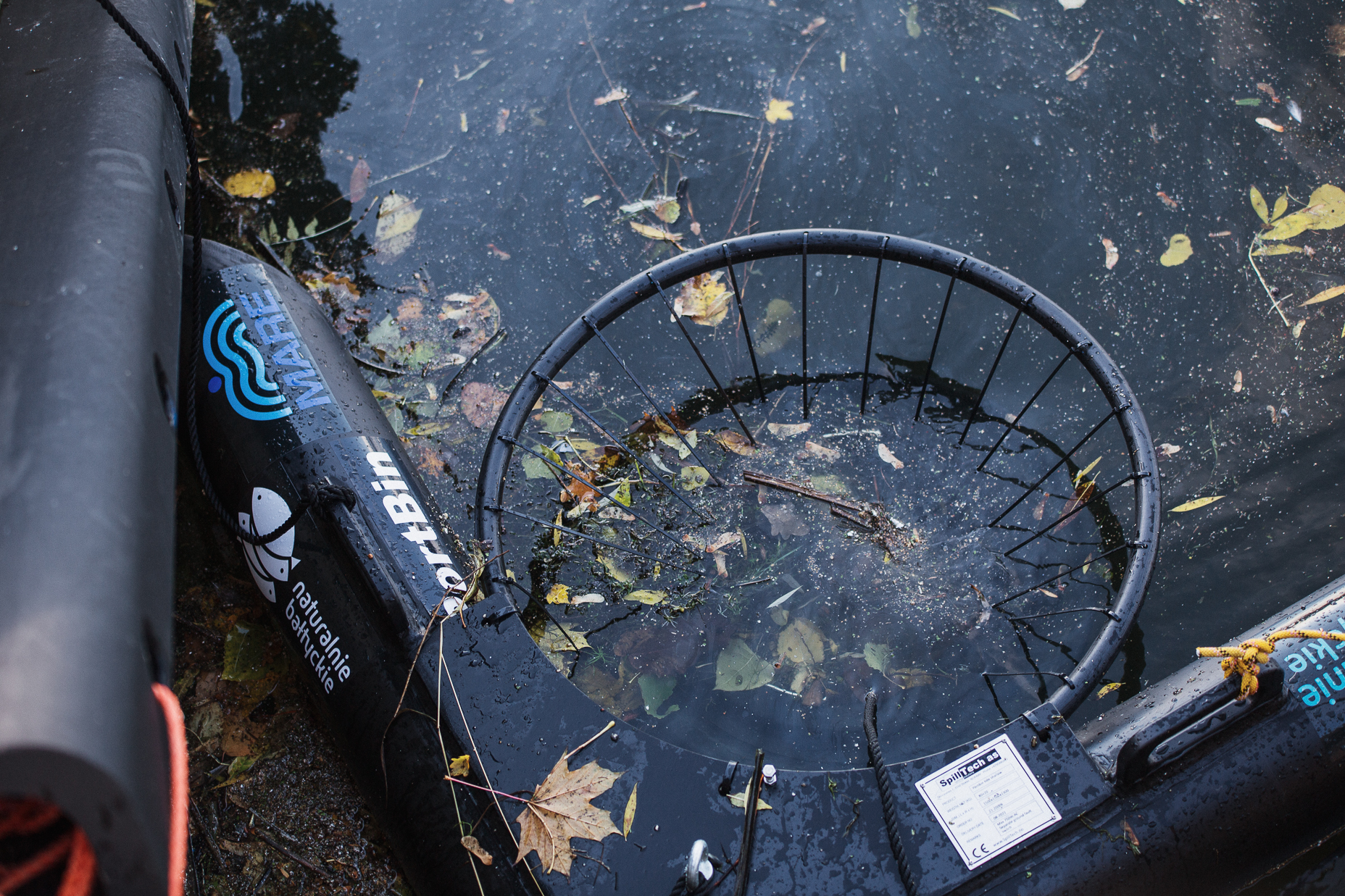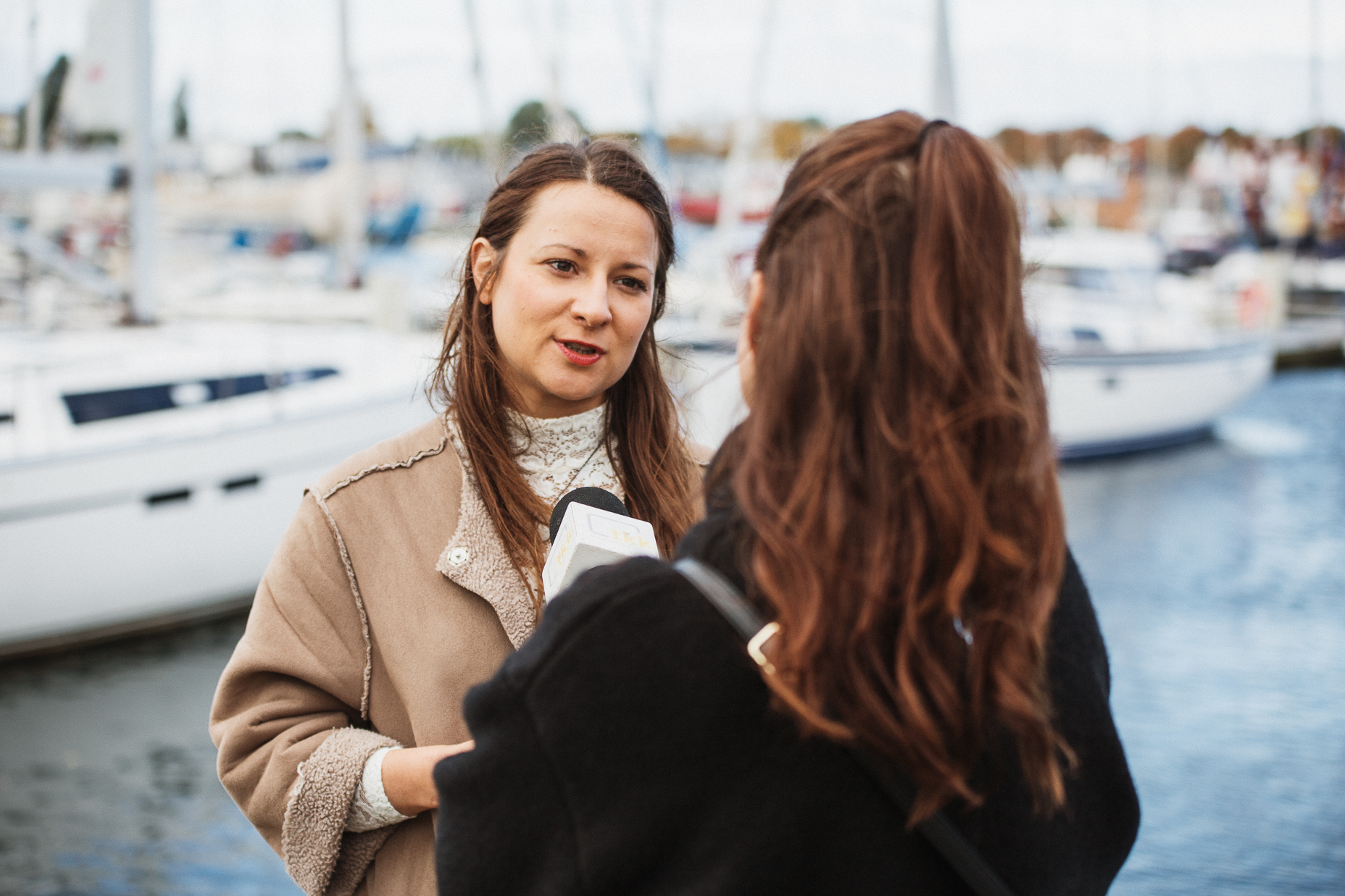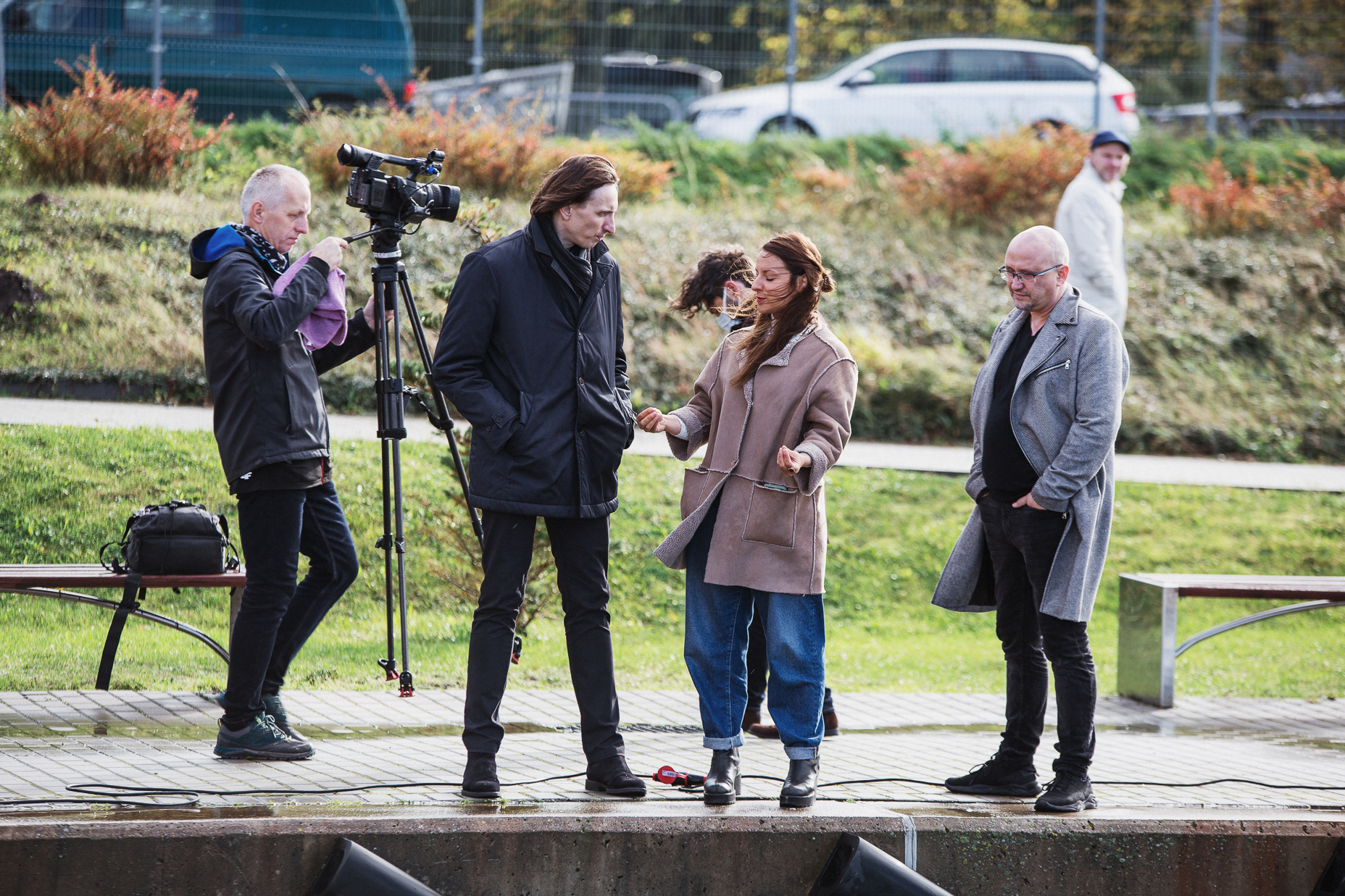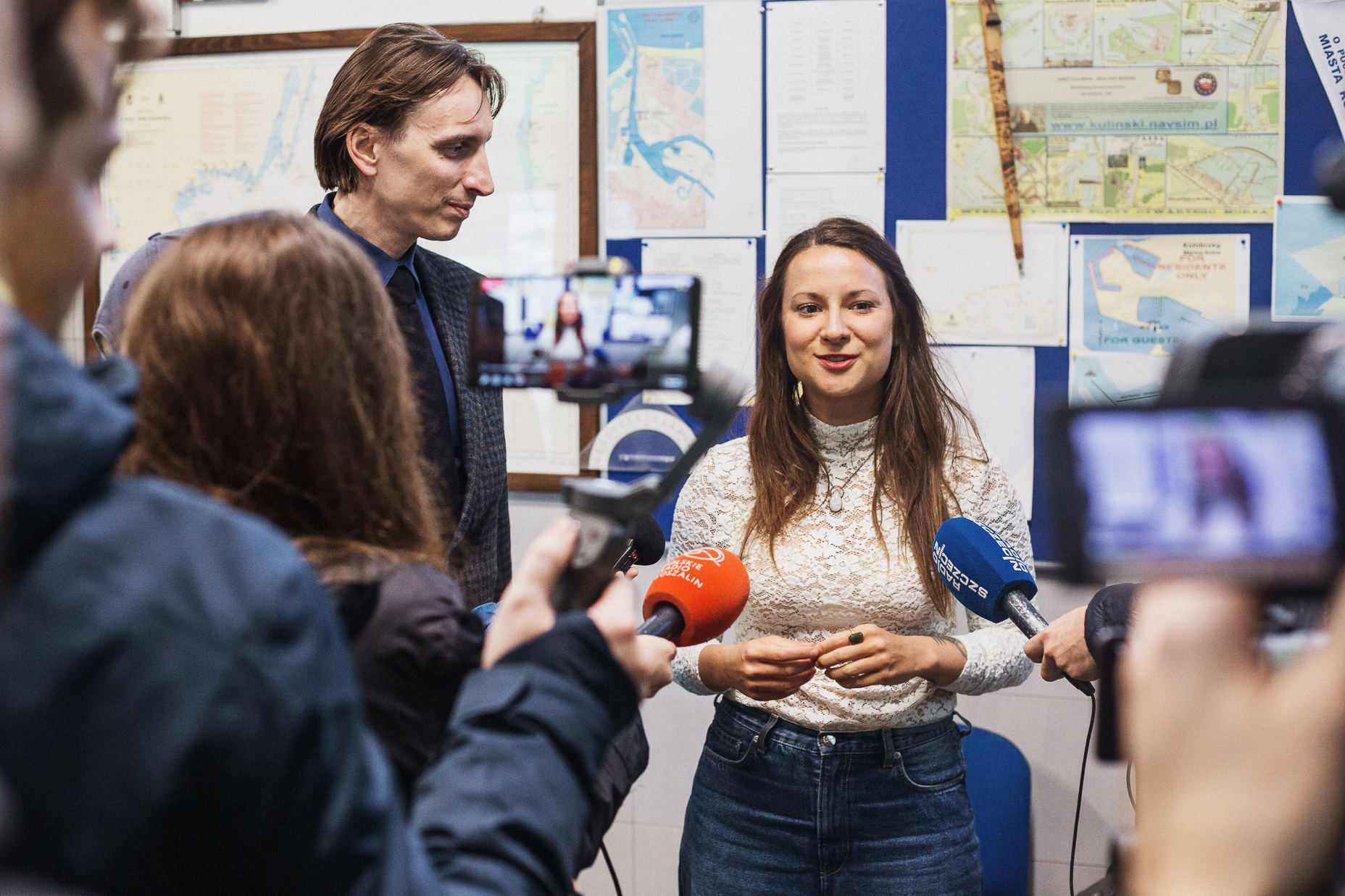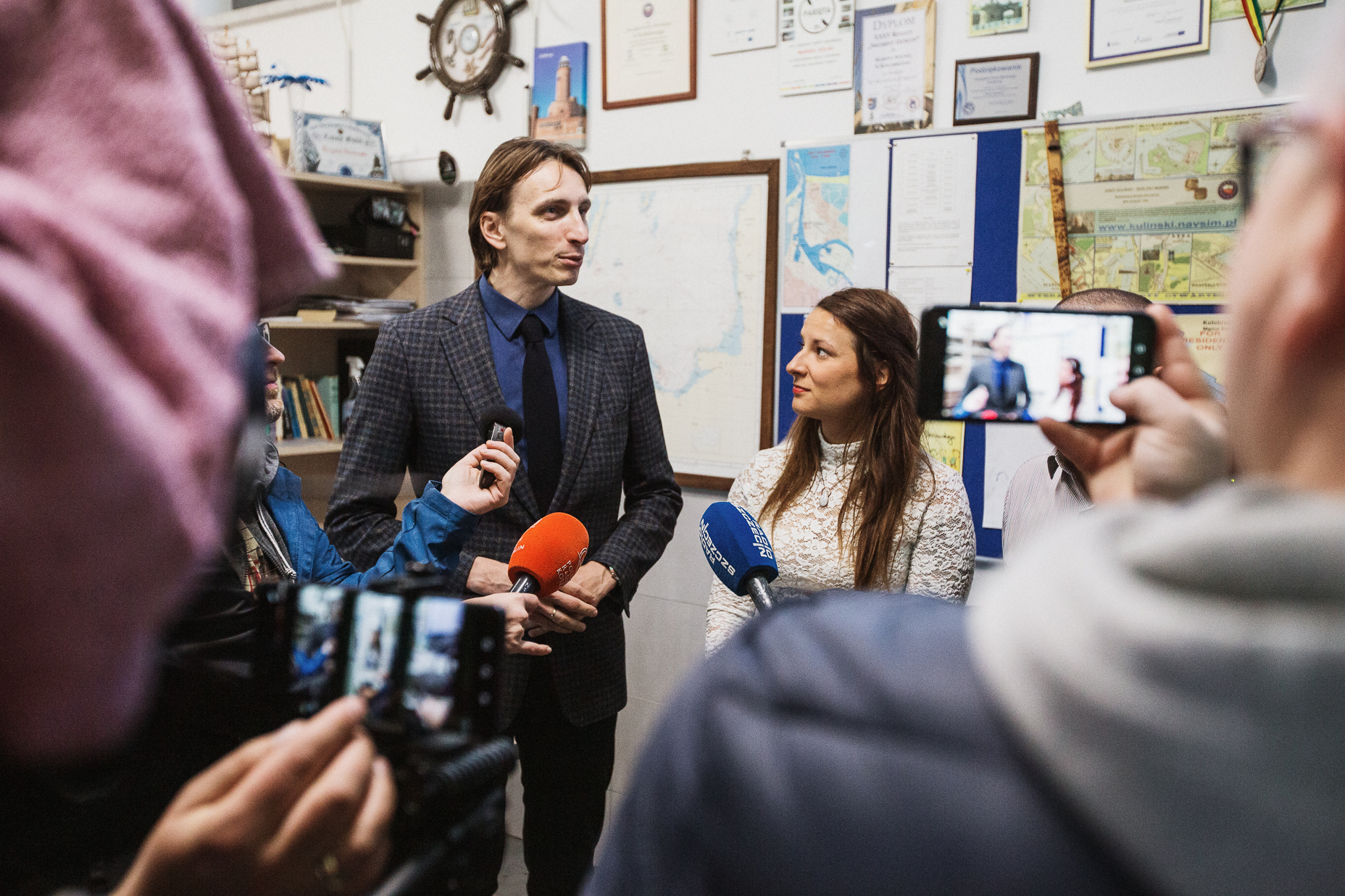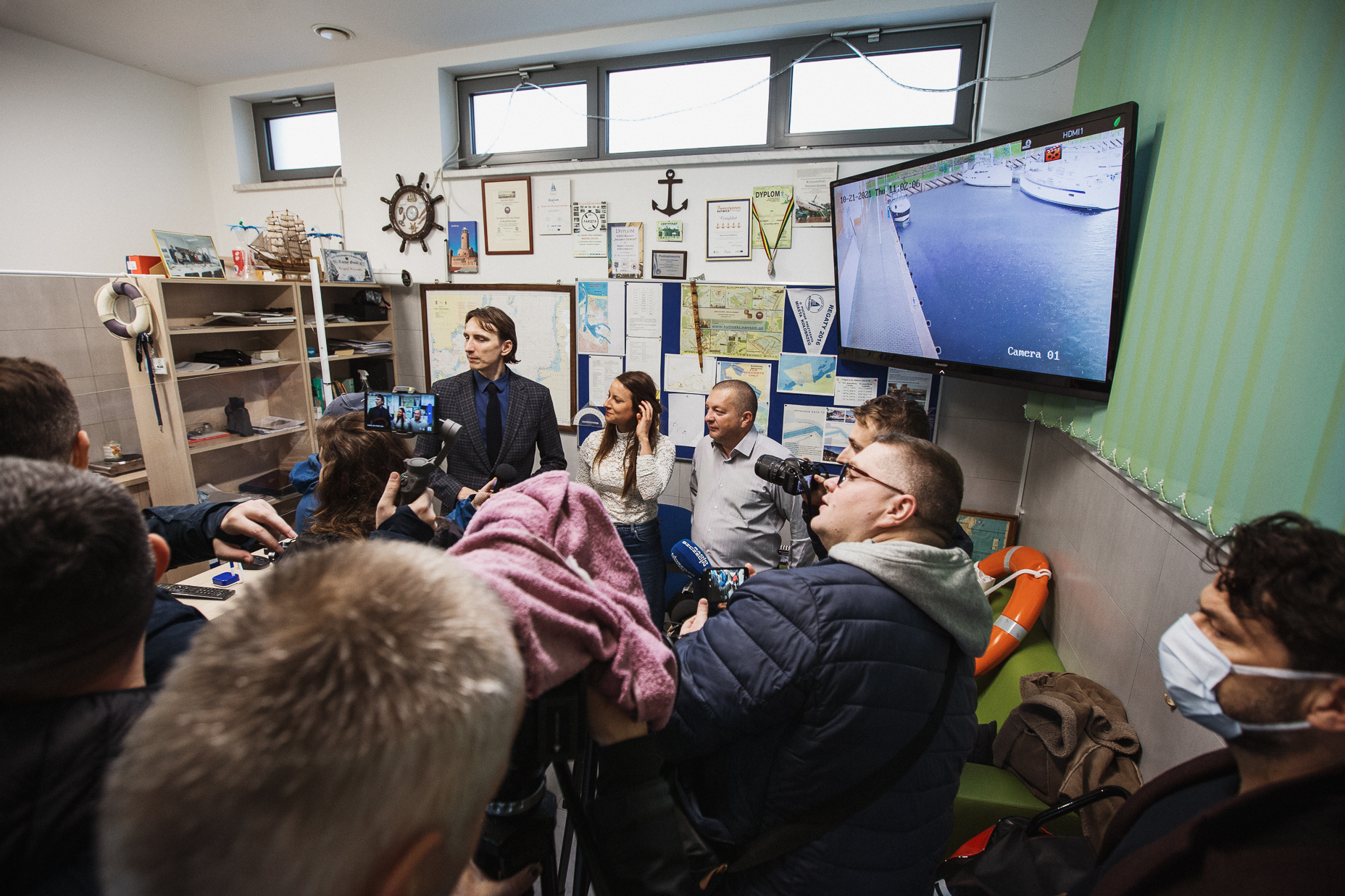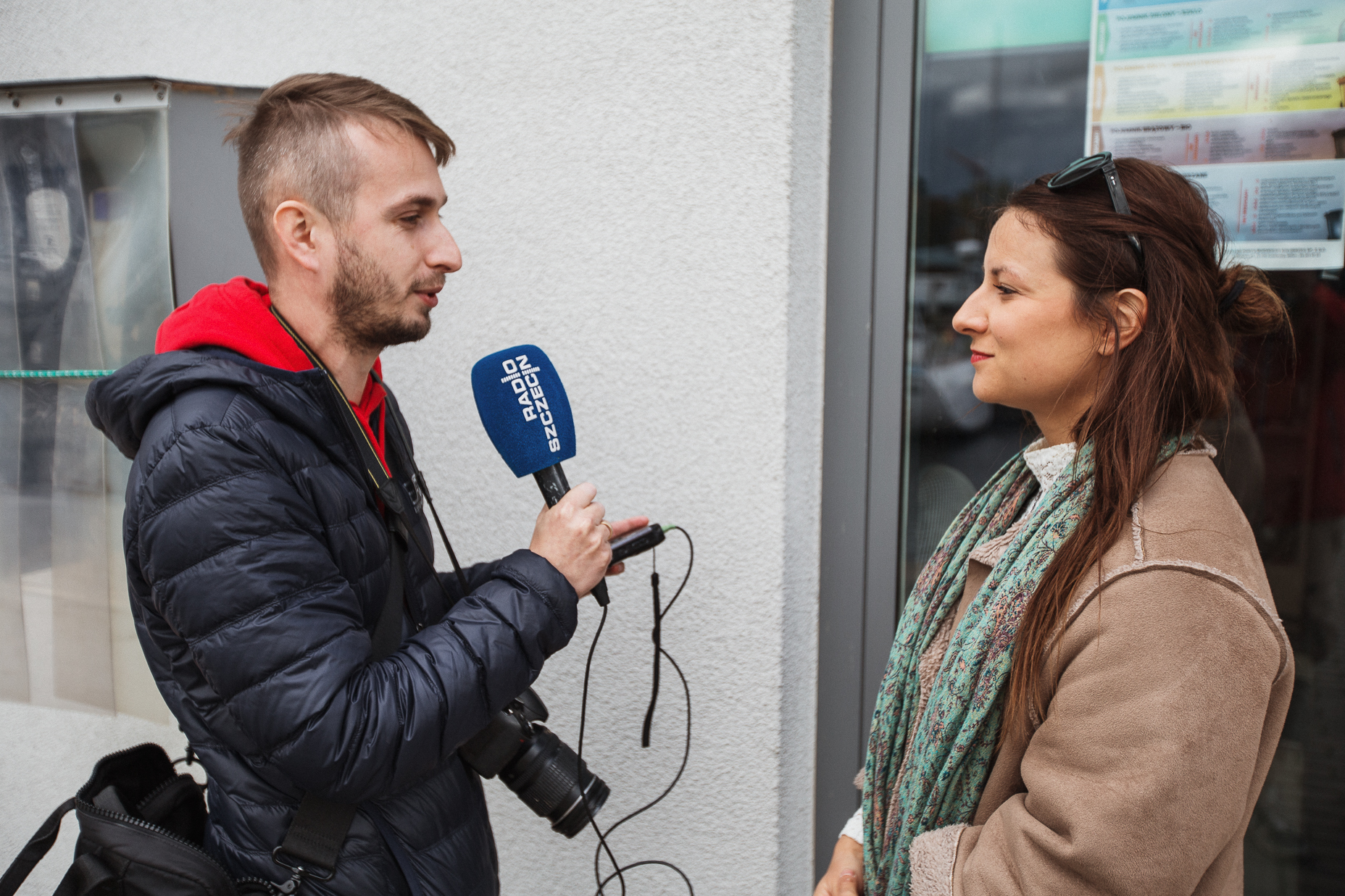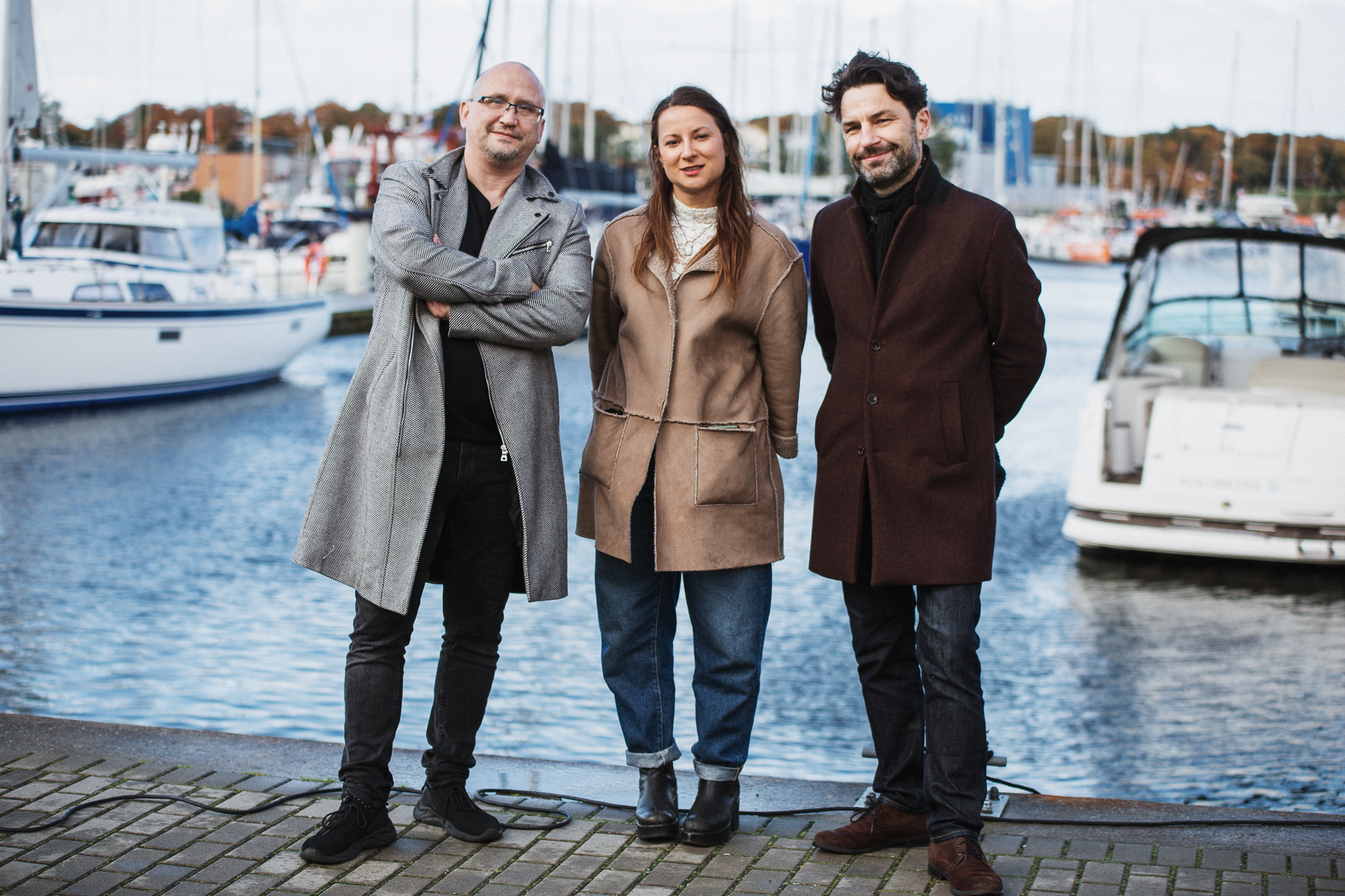A marine litter bin will collect waste from the Kołobrzeg port
In the last 70 years plastic has become an inseparable element of our everyday life. Plastic is used for the production of cars, computers, phones, in medicine and in construction works, almost in all areas of life. We depend on plastic because of low production costs, durability and convenience. However, its resistance to degradation, inadequate disposal and wide use as a single-use material resulted in an increasing amount of plastic in the environment, especially the marine environment. Between 4.8 and 12.7 million tonnes of plastic still end up in the seas and oceans every year!
In order to help the Baltic in fighting the problem of plastic pollution, the MARE Foundation installs marine litter bins in Baltic ports. These bins are able to collect up to 1.400 kg of litter from water per year. Thanks to the cooperation with the project called Naturalnie Bałtyckie a Port bin was installed in the Kołobrzeg port. It is the fourth bin installed by the MARE Foundation in 2021 and the first one on the western coast.
The impact of plastic on the ecosystem, including the health of people and animals is the subject of extensive research in the world. Plastic waste is a highly heterogenous mixture of all types, sizes and forms, and all these factors are relevant to determine the environmental impact of plastic objects. Larger waste, such as derelict fishing gears may become deadly traps for marine living organisms. Smaller particles are often confused with food. They poison the living organisms, and impair the feeling of hunger, thus causing death from starvation.
Plastic does not decompose, but only breaks down into smaller and smaller particles, the so-called microplastic and nanoplastics. Due to their small size, microplastics are almost impossible to take out from the sea and remain forever in the ecosystem. They easily swallowed by living organisms and thus enter the food chain. Recently, microplastic particles have been found in drinking water and such food products as salt or honey.
Research indicates that 94% of salt products tested globally contain microparticles of plastic – PET, PP and PE, the most often used polymers. The effects of microplastics on human health are not yet known. The problem of plastic pollution has a global dimension and is also encountered in the Baltic. Therefore, the MARE Foundation undertakes actions aimed at minimising the plastic pollution in the Baltic. The installation of sea bins in ports and marinas permits to collect debris, which had entered the natural environment, before it reaches the sea bottom and breaks into microparticles.
- The marine litter bin installed in Kołobrzeg in the framework of the cooperation of the MARE Foundation and the Naturally Baltic project is the 4th bin installed at the Baltic coast this year. The MARE Foundation plans to continue and develop the project consisting of the installation of these bins. We believe that such bins should be installed in every marina and port on our coast, because it is an effective method to measurably improve the state of the environment. It also builds the public awareness on the impact of plastic on the marine environment. We are happy that thanks to the engagement and financial support of our business partners we can be even more effective in cleaning the Baltic. – says Olga Sarna, the Char of the MARE Foundation.
The SpillTech company has developed a complete line of high-tech products used for collecting floating garbage. PortBin is an optimal solution used to collect floating garbage in ports. PortBin collects debris floating on water surface into the bin. The skimmer removes floating bottles and other waste. PortBin is equipped with a 30 litre bin, easy to empty by one person. The bin is highly resistant to atmospheric conditions. This version of the PortBin is made of plastic PE-HD plastic and is 100% recyclable. In the future, the SpillTech company plans to produce the bins out of recycled material.
The bin was installed in the Marine Port in Kołobrzeg. It was purchased in the framework of joint actions undertaken by the MARE Foundation and the Naturalnie Bałtyckie project to keep the Baltic environment healthy and clean. The project Naturally Baltic has been initiated by the Kołobrzeska Fish Producers Group. It is aimed at raising the awareness among the Poles on responsible consumption of fish products, in particular the products coming from the Baltic.
– The Baltic Sea is the work place and the source of livelihood for thousands of people involved in the Polish fisheries. Therefore, fishermen are very keen to protect the Baltic, to preserve its living resources for the future generations. We look forward to getting involved in the actions aimed at improving the state of the Baltic, among others in cleaning it from derelict fishing gears and other marine litter. The aim of the Naturalnie Bałtyckie project is to raise awareness on our treasure, the Baltic Sea and the ways it could be protected – says Marcin Radkowski, the chair of the Kołobrzeska Fish Producers Group, the initiator of the Naturalnie Bałtyckie project.


